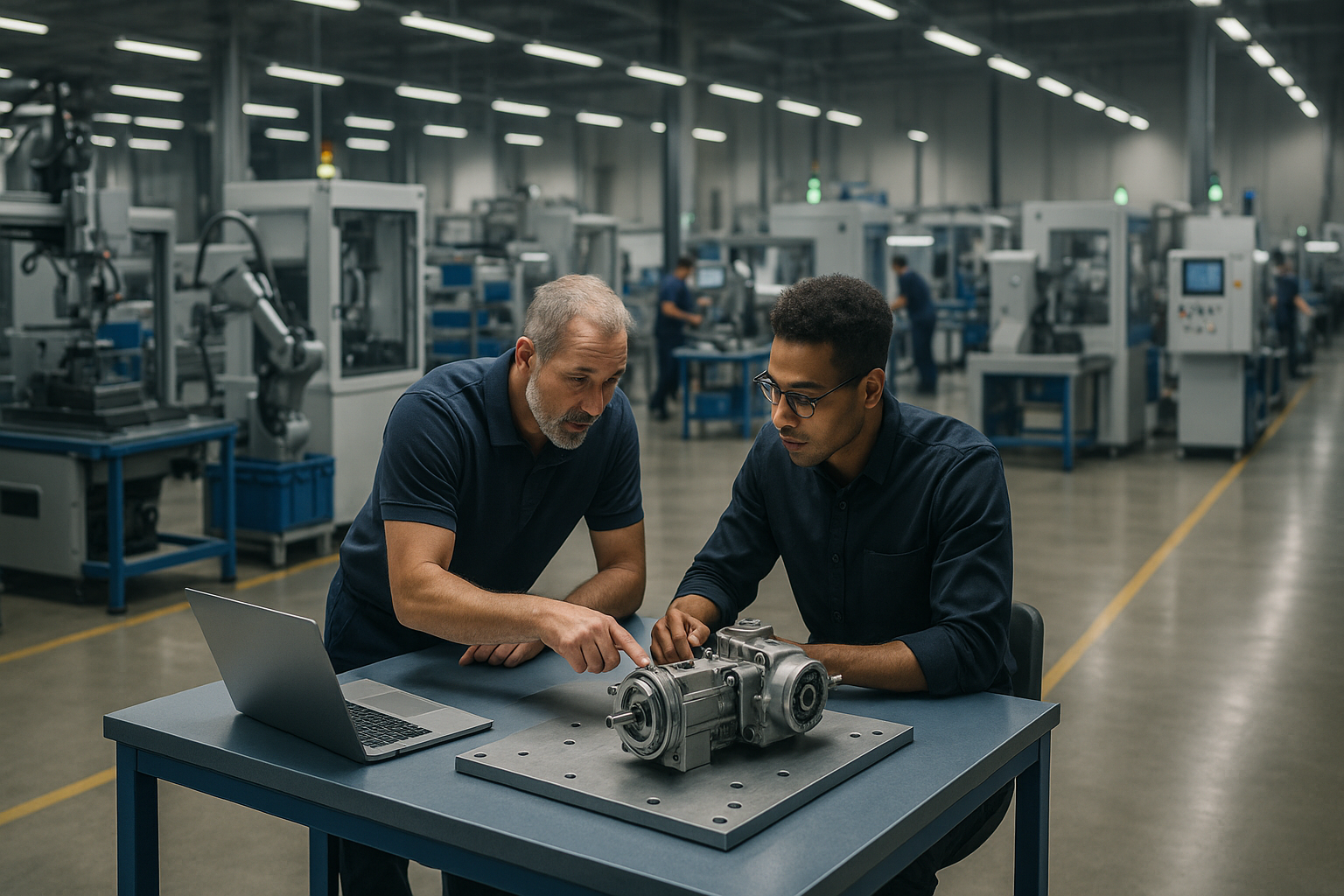Manufacturing Jobs in Spain: Roles, Skills, and Career Paths
The manufacturing sector offers a wide range of jobs that combine hands-on work, technical skill, and logistical coordination. For people considering a manufacturing career, especially in Spain, understanding typical roles, workplace conditions, and employer expectations can help with planning training and job searches. This article outlines common positions, practical skills, regional considerations in Spain, factory conditions, and what industry employers look for in candidates.

Types of roles in manufacturing
Manufacturing covers roles from assembly-line operators to engineers and supervisors. Entry-level positions often include machine operators, quality inspectors, and material handlers. Mid-level roles commonly involve CNC operators, maintenance technicians, production planners, and process technicians. Higher-skilled or management roles include production managers, industrial engineers, and supply chain coordinators. Many plants also employ support staff in logistics, health and safety, and administrative functions. Job tasks vary by product type—automotive, food, electronics, or textiles—but core functions like following procedures, monitoring equipment, and maintaining quality are common across settings.
How to build a manufacturing career
A practical manufacturing career typically starts with on-the-job training, vocational certificates, or technical diplomas. Apprenticeships and industry-recognized certifications in mechatronics, welding, PLC programming, or CNC operation can speed progression. Soft skills—teamwork, problem-solving, and reliability—are often as important as technical ability. Many employers promote from within, so demonstrating consistent performance, attention to safety, and willingness to learn new processes can lead to supervisory or specialist roles. Lifelong learning, including short courses and language skills for international teams, helps workers adapt to automation and digital systems increasingly present in factories.
Where are manufacturing jobs in Spain located?
Manufacturing jobs in Spain are concentrated in industrial regions and around major transport hubs. Key areas include Catalonia and the Barcelona region for automotive and electronics, the Basque Country for machine tool and industrial engineering firms, and Valencia and Andalusia for food processing and textiles. Smaller provinces host clusters of specialized manufacturers; local services like employment centers and vocational schools often list opportunities in your area. Regional economic policies and logistics connectivity—ports, roads, and rail—also influence where factories locate, so location choices can affect commute times, shift availability, and seasonal hiring patterns.
What is factory work like day-to-day?
Factory work varies by role but generally involves structured shifts, repeatable tasks, and close adherence to quality and safety standards. On a typical production line, workers monitor machines, perform visual inspections, assemble parts, or package finished goods. Maintenance technicians troubleshoot equipment and perform preventive checks, while quality staff document results and follow corrective actions. Factories increasingly use digital tools for monitoring production metrics, so workers may interact with tablets or control panels. Work can be physically demanding and may require personal protective equipment; employers usually provide safety training and protocols for machinery, chemicals, and ergonomics.
What skills does the industry value?
The manufacturing industry values a blend of technical and interpersonal skills. Technical proficiencies include machine operation, basic electrical/mechanical knowledge, reading technical drawings, and familiarity with automation systems. Digital literacy—using monitoring software, inputting data, and understanding simple programming—has become more important. Quality awareness, adherence to standard operating procedures, and basic problem-solving help reduce downtime and defects. Employers also seek reliability, punctuality, and teamwork. Language skills and the ability to follow written instructions are beneficial in multilingual workplaces. Continuous improvement mindsets, such as participating in lean or 5S initiatives, are often rewarded.
Conclusion
Manufacturing jobs provide diverse pathways, from hands-on production to technical and managerial careers. In Spain, opportunities are shaped by regional industrial clusters, the type of goods produced, and evolving technologies in factories. Building a sustainable career usually combines vocational training, on-the-job experience, and adaptability to digital tools and safety practices. For job seekers, researching local services, vocational programs, and employer requirements in your area can clarify which roles match your skills and long-term goals. As the industry continues to modernize, workers who blend technical competence with reliability and continuous learning will find the most opportunities.






